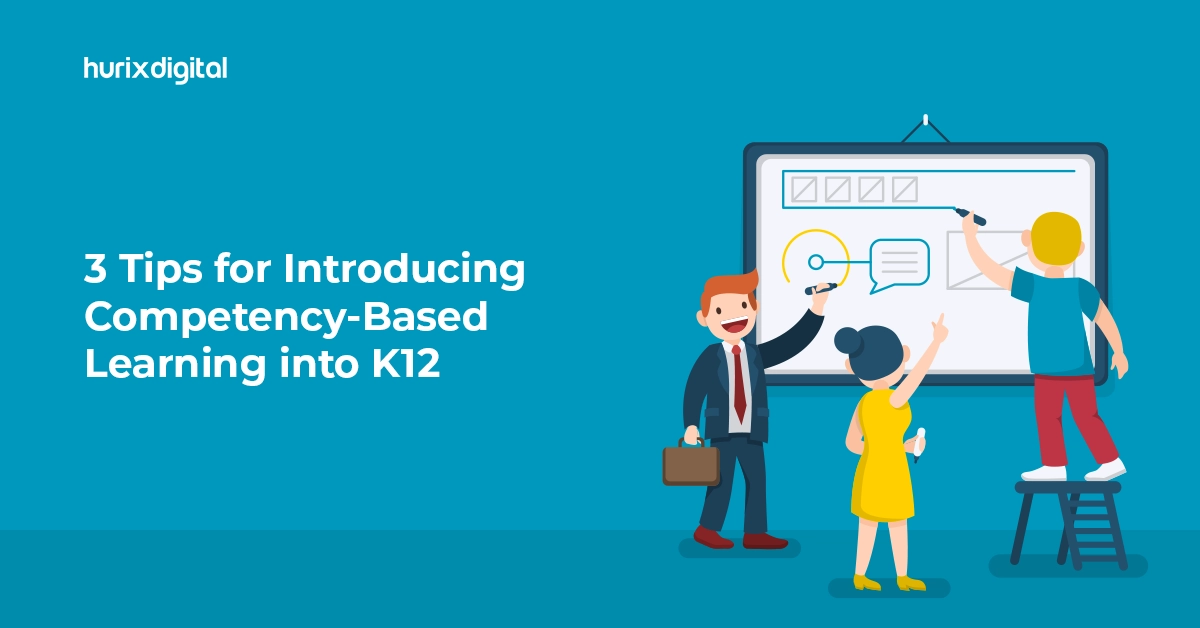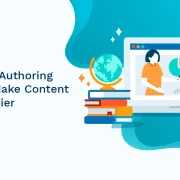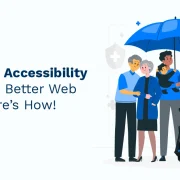
Top 6 Challenges Facing CBC (Competency-Based Curriculum)
This blog explores the increasing usage of competency-based curricula in higher education and the challenges facing CBC. It provides an overview of CBC’s advantages and key implementation challenges.
The last few years have seen the increasing usage of competency-based curriculum (CBC) in higher education, but that has come with various challenges facing CBC. This is largely due to its innovative approach and being a self-paced, mastery-oriented program that leverages technology to a great extent.
Apart from offering an alternative to traditional courses (in-person or online), a competency-based learning curriculum allows students to master and demonstrate competency in various tasks and skills to complete courses. Although the model has many potentials, it comes with challenges and flaws that must be overcome to make it a viable education model. Competency-based education programs have been implemented in 82% of educational institutions, or they are being adopted.
This blog will explore the key challenges facing CBC for higher education institutions while implementing a competency-based training curriculum.
Table of Contents:
- The Evolving Landscape of Competency-Based Curriculums
- What are the Advantages of a Competency-Based Training Curriculum?
- 5 Main Advantages of Competency-Based Training
- What are the Key Challenges Facing CBC (Competency-Based Curriculum)?
- In Conclusion
- Frequently Asked Questions (FAQs)
The Evolving Landscape of Competency-Based Curriculums
The Competency-Based Curriculum has emerged as a crucial factor in training students and teachers to thrive globally. The CBC emphasizes skills mastery and personalized student learning, breaking away from a traditional classroom setup and time restrictions. This approach of demonstrating proficiency before advancing to the next course helps the students prepare for a practical, real-world application of knowledge.
- The global adoption of a Competency-Based Curriculum in education acknowledges a need for expertise in practical skills and competencies for learners’ growth and survival. On a micro level, factors like cultural variation or educational infrastructure influence CBC adoption in institutions.
- Integrating technology in CBC makes learning more dynamic and responsive for educators and learners alike. Digital platforms play a major role in developing personalized learning paths, tracking progress, and monitoring assessments. Equitable access to technology and ensuring digital literacy would guarantee a successful installation of CBC programs in educational infrastructures.
CBC is gaining prominence in higher education, as there is a global need for adaptability, practicality, customization, and the development of critical skills in education. However, the CBC implementation faces major challenges in digital equity, training and supporting educators in the transition, and developing comprehensive assessment methods for a global and local community.
1. Emerging Challenges of CBC Education
- The implementation of a Competency-based curriculum faces multiple challenges globally. Unlike traditional exams, the CBC requires efficient ways to monitor student’s progress in skills. This includes portfolio reviews, project-based assessments, and real-world applications of education. Educators must focus on skills development rather than rote learning tactics, using necessary resources and time to design efficient evaluations.
- Technology plays a pivotal role in CBC education’s success. Adequate digital infrastructure ensures smooth access to digital tools and resources. However, digital equity still poses a significant issue, and learners still struggle to access basic digital devices or access internet connectivity. It is also crucial for educators to be digitally literate to utilize the technology.
- Another challenge for CBC implementation in educational infrastructure is the readiness of teachers and staff. Institutions must prepare educators in digital literacy and provide the necessary skills to access and facilitate the CBC curriculums. Institutes must also invest in professional development programs to train educators to explore the potential of CBC’s digital tools and platforms.
What are the Advantages of a Competency-Based Training Curriculum?
A competency-based curriculum focuses on targeted learning processes that identify specific student competencies or skills. This enables learners to develop mastery of each of these competencies or skills at their own pace.
Besides offering a more personalized path to course completion, the competency-based approach is also structured to demonstrate learning in clearly articulated competencies. It emphasizes authentic assessment to evaluate what the learner knows and can do through real-life projects.
The key objective of competency-based learning is to break away from the traditional classroom model, where every student studies the same subject matter at the same speed.
A competency-based training curriculum primarily emphasizes on what learners are expected to do rather than simply focusing on what they are expected to know. A completely learner-centric curriculum and fully adaptive to the changing needs of students, CBC envisions every learner to have achieved the following competencies by the end of the course-
- Critical thinking and problem-solving skills
- Imagination and creativity
- Communication and collaboration skills
Also Read: A Comprehensive 7-Step Process to Design a Competency-Based Curriculum
5 Main Advantages of Competency-Based Training
- Flexibility: Competency-based training allows learners to progress at their own pace and to focus on the specific skills and knowledge they need to achieve their goals. This can be especially useful for learners who may have time constraints or who may have prior knowledge or experience in certain areas.
- Customization: Competency-based training can be tailored to meet the specific needs and goals of the learner rather than following a predetermined curriculum. This can be more effective in helping learners to achieve their desired outcomes.
- Measurable outcomes: Competency-based training focuses on specific, measurable skills and knowledge, which can make it easier to track progress and assess learning outcomes.
- Relevance: Competency-based training can be more directly relevant to the learner’s needs and career goals, focusing on the skills and knowledge most applicable to their chosen field or profession.
- Increased motivation: Competency-based training can be more engaging for learners as it allows them to see the direct relevance of what they are learning and to track their progress toward specific goals. This can increase motivation and help learners to stay focused and engaged in their learning.
What are the Key Challenges Facing CBC (Competency-Based Curriculum)?
1. Achieving Excellence
A competency-based curriculum requires educational institutions to demonstrate an uncompromising commitment to excellence. Some of the key concerns they face here include-
- How do we ensure that the rigor and quality of the curriculum-based programs remain equitable across the board?
- How will the curriculum realize this goal of achieving excellence?
- How will the competency-based approach break the path of mediocrity and move beyond the fate of other general education trends?
2. Large Class Size
Another key challenge in implementing a competency-based curriculum is the large class size. A higher number of students in a classroom tends to affect student-instructor interactions and can also prevent peer exchanges during classroom discussions.
Since every student learns differently, the instructor’s pace in a high-density class may work for some students but not for others.
This greatly hinders the implementation of a competency-based curriculum and restricts educators from applying learner-centric interactive teaching methods.
Limiting class size can be beneficial for both students and educators. It can lead to improved learners’ performance, as instructors can assist students with learning difficulties individually.
3. Infrastructure for Learning
Since a competency-based curriculum involves a fundamental shift from passive to active learning, the infrastructure needed for this model is very different. To implement a competency-based curriculum, educational institutions require everything from modern classrooms, creative centers, smart boards, laboratories, and the latest technologies at all levels, as these can help students actively participate in the learning process.
This means that the administrators must be fully convinced about the advantages their institutions accrue from implementing the new competency-based learning model.
4. Assessment Standardization
One of the challenges facing CBC in higher education is standardizing the mechanisms by which competencies or skills are assessed. This is because CBC, being a personalized learning approach, focuses largely on subject mastery, irrespective of the place, time, and pathway to completion.
Below are some of the concerns that institutions struggle with in terms of CBC assessment implementation-
- How do we measure each student for every performance outcome?
- How do we identify opportunities for learners to demonstrate individualized subject mastery without adhering to standardized performance outcomes?
- Who determines the student learning outcomes, and should they vary from institution to institution?
5. Broad Recognition and Understanding
Competency-based learning is a relatively new learning model. Students graduating through this method are sometimes greeted by skeptical employers who are unaware of the model.
Additionally, many employers in the job market are rigid about hiring students who pass traditional educational programs and attain a certain grade.
6. Expanding Competency-Based Programs for Faculty Development
Educators in many higher education institutions are ill-equipped to implement competency-based curricula unless they are a product of it. This is why building their capacity is one of the essential prerequisites before implementing competency-based learning.
Further, one of the challenges facing CBC is the instructor’s knowledge of competency-based pedagogy. While some might understand competency-based learning, many still struggle with the concept and lack the capacity the competency-based system demands.
Some of the things that need to be addressed here include-
- Identifying the competencies needed based on the specific job profiles
- Performance expectations
- Measurement criteria in different relevant domains, including communication and analytical skills, to design the learning experiences
Also Read: Why Should Higher Education Institutions Encourage Competency-Based Learning (CBL)
In Conclusion
Due to its innovative approach, competency-based learning has garnered strong interest among higher education institutions and other education stakeholders.
Although a competency-based curriculum is much more efficient in helping the learner acquire the competencies needed to perform specific tasks, CBC faces various challenges in its implementation.
To systematically overcome these challenges, institutions must focus on faculty capacity-building to help them become familiar with the changing learner-centered programs. Institutions can achieve this through various faculty development programs, which facilitate their learning of the skills required for this innovative educational program on the job.
Hurix Digital helps educational institutions develop competency-based curricula. Our SMEs and instructional designers work collaboratively to ensure an enriching, engaging, and experiential experience for the learners as they master skills. Join us to learn more about our competency-based content development services.
Frequently Asked Questions (FAQs)
Q1. How does a competency-based curriculum differ from a traditional curriculum?
A competency-based curriculum centers on students showcasing specific skills or competencies, while a traditional curriculum prioritizes delivering content knowledge.
Q2. Can a competency-based curriculum be implemented at all educational levels?
Implementing a competency-based curriculum is possible across primary, secondary, and higher education levels, and its adaptability to various subjects, disciplines, and complexities allows for its flexible application in diverse educational environments.
Q3. How does a competency-based curriculum promote personalized learning?
A competency-based curriculum fosters personalized learning by enabling students to advance at their own pace, where mastery of specific competencies determines progression.
Q4. How does a competency-based curriculum prepare students for the workforce?
A competency-based curriculum emphasizes practical competencies and real-world application, aligning with workforce requirements and equipping students with job market readiness.
Q5. How does a competency-based curriculum assess student progress?
Assessments in a competency-based curriculum focus on demonstrating specific skills and competencies. They may include performance tasks, projects, portfolios, or real-world applications, providing a comprehensive understanding of students’ abilities and progress.

Senior Vice President
A Business Development professional with >20 years of experience with strong capability to sell new solutions and develop new markets from scratch. New Market Entry Specialist with experience working in the largest emerging markets. Exceptional experience in conceptualizing, ideating and selling new learning technologies like VR AR, etc. across multiple industry verticals.








